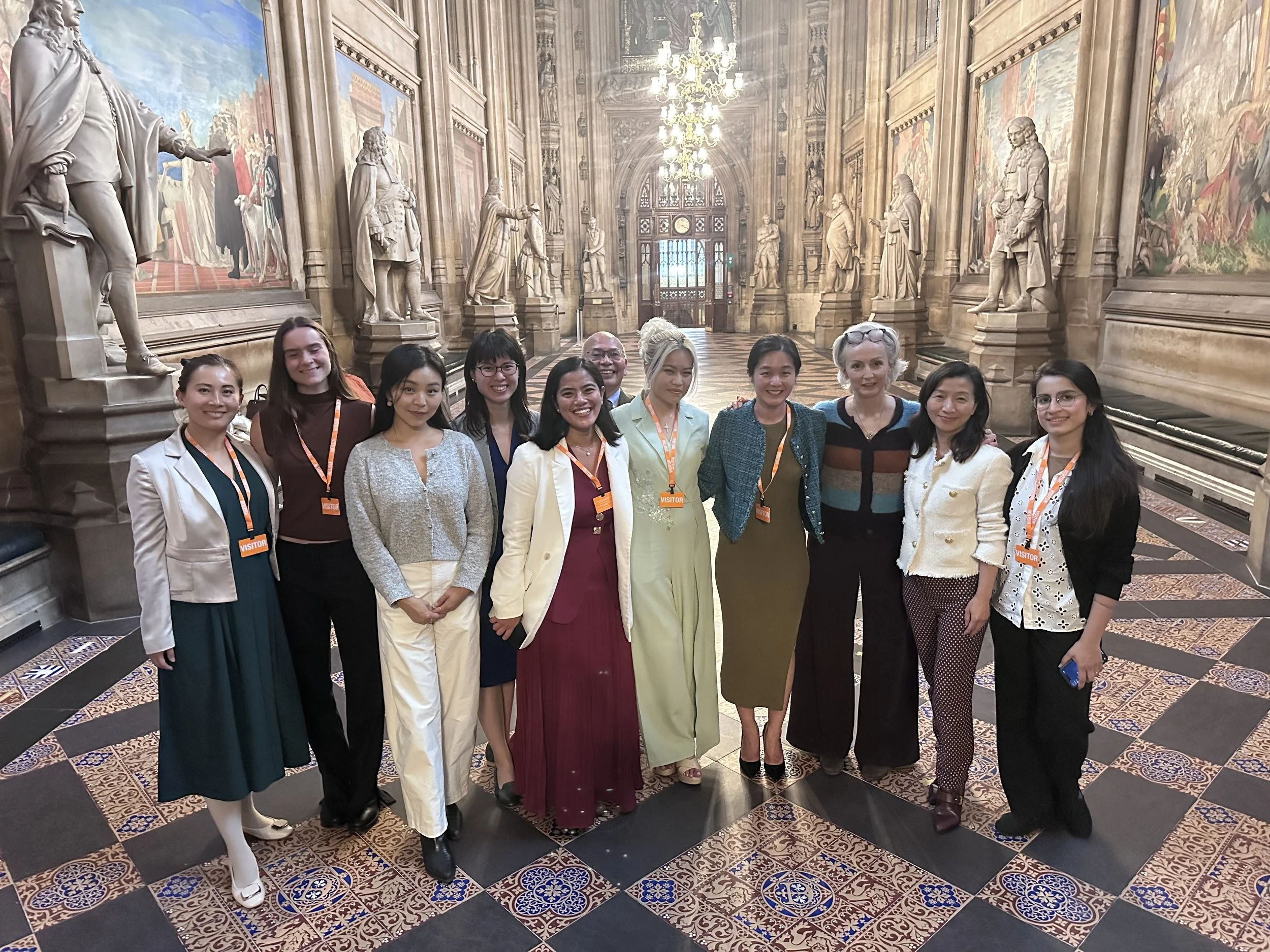Women Shaping Health Innovation at U.K. House of Lords
Global Women Asia at the U.K. House of Lords: Women Shaping Health Innovation
At its September 17 gathering in London, Global Women Asia (GWA) reaffirms a mission that feels both urgent and fragile: creating bridges across borders at a time when long-held values around gender equality are under pressure. The idea is simple but ambitious: if global challenges are to be met with credible answers, they need the perspectives of those who live closest to the problems.
Baroness Mary Goudie set the tone with a reminder that progress on women’s rights “is never given, only defended.” GWA Founder and Chairwoman Wenchi Yu framed the organisation’s purpose more directly: building a global community of diverse leaders to bring better perspectives to global problems and more grounded solutions.
That principle underpins the fellowship program, GWA’s core engine. This year’s cohort brings together 14 young leaders from 12 countries, with a program in Boston planned for November 5-9. Two fellows, current and former - Ruby Wang and Larissa Sidarto - were present in London. The fellowship’s purpose is pragmatic rather than ceremonial: exposure, networks, and support for women navigating uneven terrain in entrepreneurship, health, and leadership.
IVF Access and Equity
Professor Geeta Nargund, a renowned pioneer in accessible fertility care, reminded the room that innovation only matters when it reaches those who need it most. From IVF techniques that reduce reliance on drugs, to the low-cost “shoebox” incubation system now deployed in Africa, to mobile IVF units being piloted in South Africa, her work has been about lowering barriers.
She founded CREATE Fertility, which in 2021 became part of the largest acquisition in the UK’s IVF sector. To expand access further, she went on to launch the country’s first low-cost fertility clinic. She later established a charity to improve women’s health outcomes, particularly for Black, Asian, and minority ethnic women.
She spoke candidly about the stigma that still surrounds infertility worldwide - often falling hardest on women regardless of medical cause. In addition to her work on fertility, she is also the Chair of the Pipeline, a gender parity firm that works to advance women in leadership roles through tailored development programs.
Mental Health as a Global Frontier
Marine Mallinson, entrepreneur-turned-investor, shifted the conversation to mental health. She highlighted two trends reshaping the field: more personalised, multimodal treatments and a shift from reactive to preventive care. Examples ranged from psychedelic-assisted therapies targeting multiple conditions simultaneously, and gene-informed precision psychiatry, to AI scribes that free up clinician time and blood tests that cut years off the average delay in identifying conditions like bipolar disorder. Devices also play a part. Non-invasive transcranial magnetic stimulation can treat depression, OCD, and addiction with neuromodulation, whilst smartphones and wearables enable the analysis of facial expressions, speech patterns, typing speed, and heart rate to detect depressive episodes weeks before they manifest.
For Marine, mental health is fundamental. It's about how we think, behave, and ultimately thrive.
It is also an economic case. The cost of untreated mental illness reverberating through families, workplaces, and economies is huge. So, is the return on investment that mental health innovations deliver. New scientific and technological tools now make prevention and intervention at scale possible - if investment and affordability keep pace.
Female Representation in Health Innovation
Ruby Wang, a physician and GWA Fellow 2025, closed the session with reflections on her own cross-border career. From clinical practice in the NHS (National Health Service), to health policy for the UK government and the UN in Beijing, to now leading healthtech and life sciences consulting in London, she highlighted how diverse experiences can open new pathways for innovation - and drive bridge-building across systems and sectors.
There remain well-known inequities in venture funding - with female-founded teams still receiving only around 2% of global investment, and women’s health companies just 2–3% of sector funding. This is where networks like GWA can help to transform this picture. When women are present in policy, trials, and boardrooms, health innovations become smarter, safer, and more effective.
Representation is strengthened by real communities and networks, and as Ruby underlined, the value of GWA lies in building mentors and peer-support - especially in health and STEM - so that women feel empowered to lead.
Following on from this House of Lords event, the next GWA gathering will be in November, where the 2025 GWA Health Innovation Fellows will meet health innovation leaders, academics, corporate executives, policymakers, and entrepreneurs at MIT and Harvard, to continue the aim of the platform: women working together to build.
Learn more about Global Women Asia and subscribe to our newsletter.


